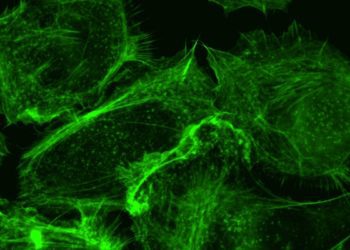Both night and non-shift shift work associated with increased dementia risk
1. In this retrospective cohort study, shift workers, defined as working outside of the normal hours of 9 am to 5 pm, were found to have a significantly higher incidence of development of dementia than non-shift workers.
2. Among shift workers, there were no differences in the incidence of dementia development between night shift workers and non-night shift workers.
Evidence Rating Level: 2 (Good)
Dementia is a progressive cognitive disorder that significantly interferes with independent daily activities, typically with a neurodegenerative or cerebrovascular etiology. Dementia is a widespread disorder, with an estimated prevalence of 113 million people worldwide by 2050. Unfortunately, trials that have aimed to treat dementia have been largely ineffective; and without therapeutic agents, understanding of the risk factors that contribute to the development of dementia and prevention is instrumental. In previous research, various genetic and environmental risk factors have been found to be associated with dementia. In today’s society, shift work, where an individual’s working hours are outside the normal working day, is becoming increasingly common. Shift work has been found to be associated with an increased incidence of other diseases and comorbidities, and this retrospective cohort study aimed to study the association between shift work and dementia. Data were extracted from a UK database with over 500,000 community-dwelling participants aged 37-73 when they were recruited between 2006 and 2010. Participants were categorized as non-shift workers or shift workers, depending if their schedule fell outside of 9 am to 5 pm, and shift workers were further stratified into night shift workers or shift but non-night shift workers. The primary outcome studied was all-caused dementia. 170,722 eligible participants were identified; 17,450 (16.1%) reported shift work status and 143,272 (83.9%) were not shift workers. There were 716 cases of dementia during a median follow-up period of 12.4 years; 134 (18.7%) in shift workers and 582 (81.3%) in non-shift workers. Shift workers had a higher incidence of all-cause dementia than non-shift workers (unadjusted-HR, 1.21; 95% CI, 1.00 to 1.46, P=.04), and this statistical significance persisted after multivariable adjustment (adjusted-HR, 1.30; 95% CI, 1.08 to 1.58; P=0.006). Among shift workers, there was no significant association with night shift work and development of dementia after multivariable adjustment (P=.83). In addition, the impact of shift work on the incidence of dementia did not differ among participants who were more genetically predisposed to develop dementia. Overall, this large retrospective cohort study showed that shift workers had an increased risk of all-cause dementia when compared to non-shift workers. This study was limited by a biased sample, as those volunteering for the health database may generally be in better health. In addition, dementia may have been misdiagnosed or underdiagnosed, as the study relied on electronic health records to identify dementia. Given the increasing prevalence of dementia, this study is an excellent step toward understanding risk factors, and further health policy developments will be needed to identify strategies to effectively mitigate these factors.
Click to read the study in BMC Medicine
Image: PD
©2022 2 Minute Medicine, Inc. All rights reserved. No works may be reproduced without expressed written consent from 2 Minute Medicine, Inc. Inquire about licensing here. No article should be construed as medical advice and is not intended as such by the authors or by 2 Minute Medicine, Inc.








